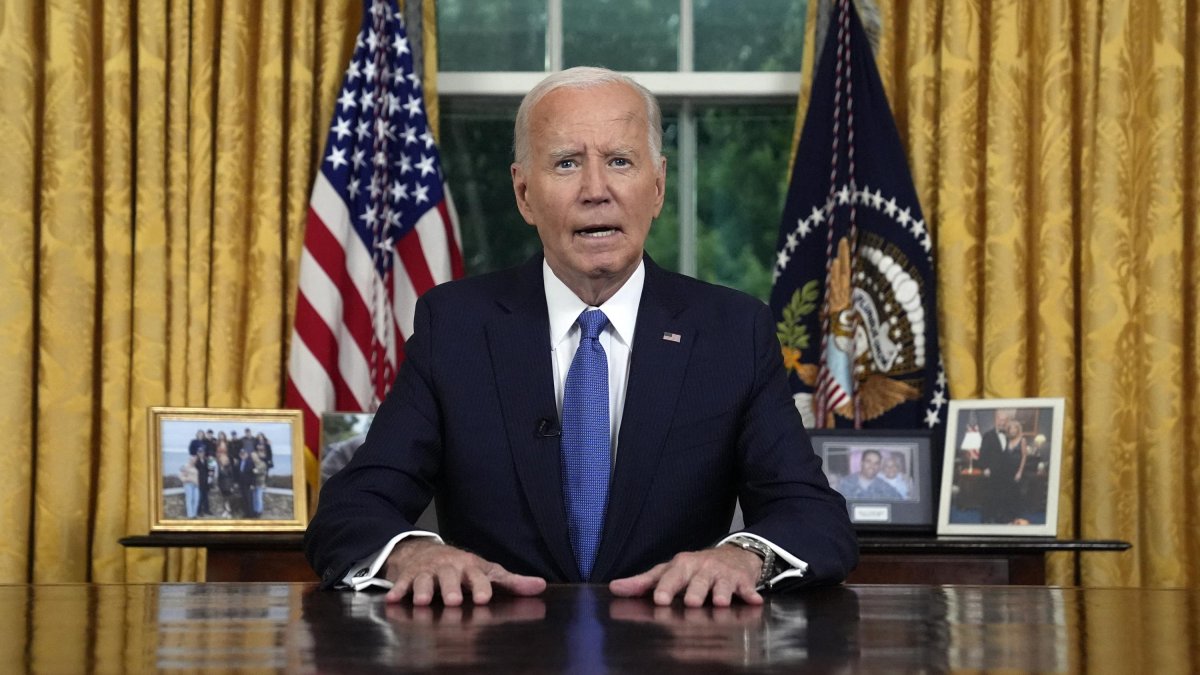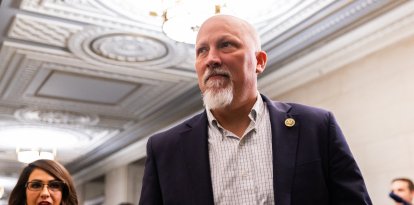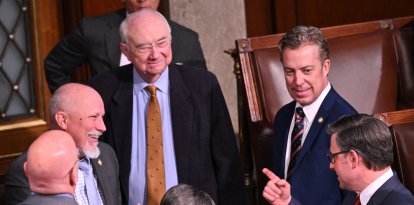Biden announces partisan plan to reform SCOTUS amid criticism of Trump and recent rulings
The president will try to push through, in what remains of his term, two changes in the Supreme Court: a code of conduct and term limits for judges. He will also try to reverse the judges' decision on presidential immunity.

Joe Biden from the Oval Office
Biden is going after the Supreme Court. After announcing that he would not seek re-election, the president promised that he would make it a priority for the remainder of his single term to reform the Supreme Court.
Although some details of the reform plan had been leaked in previous days, Biden signed an op-ed column in the Washington Post this Monday introducing three proposals that he described as popular with most Americans. As reported by AFP, the White House assured that Biden's plan also receives the support of the vice president and presidential candidate, Kamala Harris.
The initiatives, however, seem to respond more to partisan grievances, a fact that the president himself made clear by mentioning the SCOTUS ruling against Roe v. Wade as a reason illustrating the need for change. Also, their decision in favor of presidential immunity: which, the Democrat argued, would result in that "if a future president incites a violent mob to storm the Capitol and stop the peaceful transfer of power — like we saw on Jan. 6, 2021 — there may be no legal consequences. And that’s only the beginning."
Proposition 1: 'No One Is Above the Law'
After criticizing the latest string of SCOTUS decisions, the president presented his first proposal: a constitutional amendment that would "make clear that there is no immunity for crimes a former president committed while in office."
The proposed amendment No one is above the law responds to the judges' ruling in favor of presidential immunity. The decision made at the end of May established that presidents have immunity from prosecution in their official acts.

Politics
Former prosecutors endorse Kamala Harris, claiming Trump packed the Supreme Court with 'extremely conservative judges'
Emmanuel Alejandro Rondón
Democrats, with the president at the forefront, immediately came out to criticize the ruling, going so far as to claim in an argument used even within the court, that it would give the president permission to even assassinate political opponents. An idea that, Vanessa Vallejo explained then in VOZ, is false: "Of course assassinating a political opponent is not part of the official duties of the presidency."
In his Monday column with the WP, Biden insisted that the ruling made the president's power "absolute," even comparing him to a king or a dictator: "We are a nation of laws — not of kings or dictators."
Proposal 2: time limits on the term of office for judges
"I support a system in which the president would appoint a justice every two years to spend 18 years in active service on the Supreme Court," Biden explained after affirming that if presidents have term limits, so should Supreme Court justices.
The president assured that such a measure would make the calendar for appointing justices more predictable and less arbitrary. Until now, the term of office has been for life. The president in office may only appoint a new judge if another dies, steps aside or is removed by impeachment. If confirmed by a simple majority of the Senate, the justice joins the other eight on the Supreme Court.
In another veiled criticism of Trump, Biden asserted that his reform would "reduce the chance that any single presidency radically alters the makeup of the court for generations to come." During his term, Trump was able to appoint three new Supreme Court justices: Neil Gorsuch, Brett Kavanaugh and Amy Coney Barrett. An unusually high number, the most for any single-term president - though that may be about to change - as Pew Research Center explains. It's also the most of any president since Ronald Reagan, who appointed four.
Trump himself highlighted his appointments to the Court as his most important legacy, arguing that, among other related decisions, it led to the removal of Roe v. Wade.
Proposal 3: a new code of conduct
"This is common sense," Biden felt in presenting his third proposal: a new code of conduct, in this case, binding on the justices. Although the court already has a voluntary code of conduct, the president described it as "weak."
"Every other federal judge is bound by an enforceable code of conduct, and there is no reason for the Supreme Court to be exempt."
This is another claim which certain Democratic circles have been pushing in recent times, criticizing above all the connections of some judges with politicians and businessmen, for allegedly not disclosing the economic benefits of these friendships and for not recusing themselves from cases that would involve them.
This is precisely what Biden referred to: "Justices should be required to disclose gifts, refrain from public political activity and recuse themselves from cases in which they or their spouses have financial or other conflicts of interest."


























